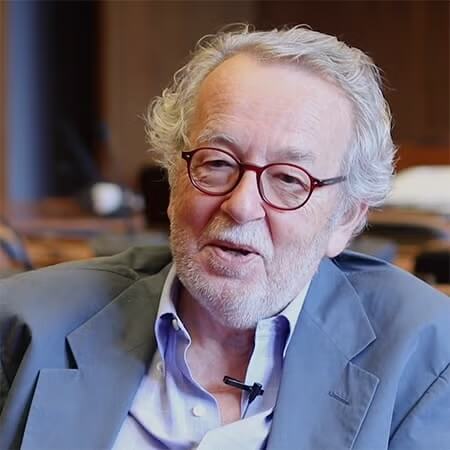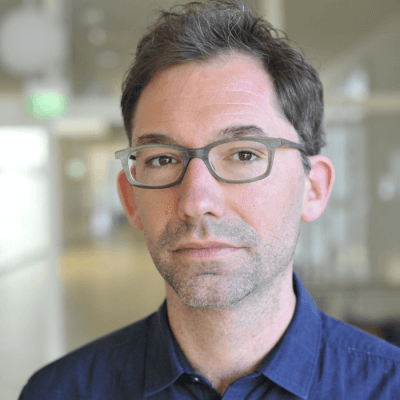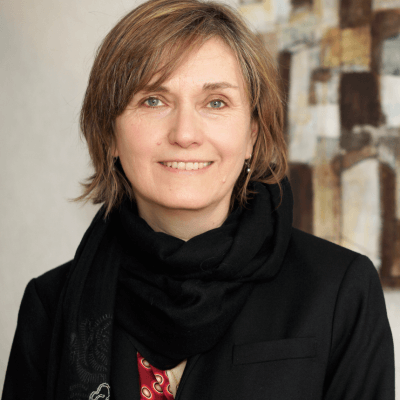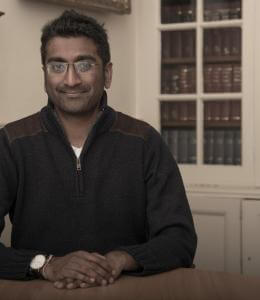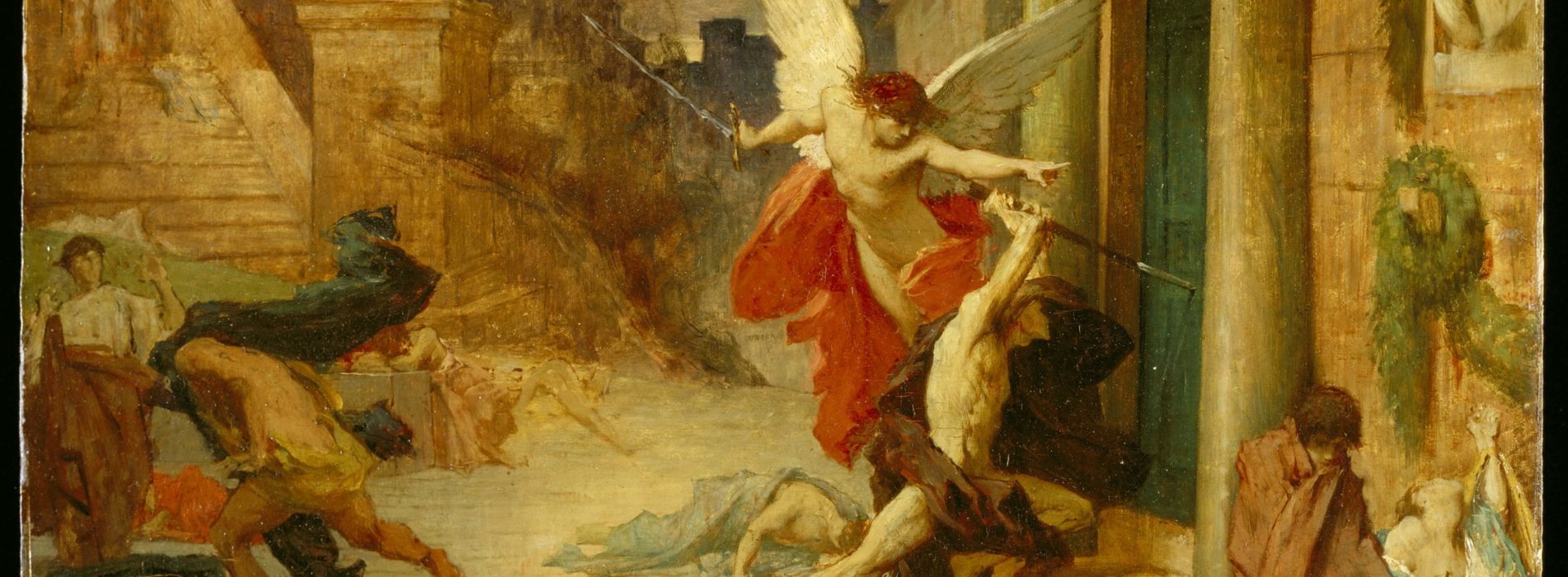The Western Flu: The Coronavirus Pandemic as a Eurocentric Crisis
https://doi.org/10.71609/iheid-746x-cr96Call it the Western Flu. It might have originated in China – as President Donald Trump has continually reminded everyone with his not-so-subtle dog whistles – but Covid-19 is a pandemic that is ultimately more revealing about the West’s current zeitgeist. For all their diffusion and spread, pandemics are not merely a public health issue or a matter of geography. Pandemics immanently carry socioeconomic and political overtones, which in a globalised world rapidly – indeed instantaneously – determine perceptions of the event and eventually frame its history.
Unsurprisingly, the Eurocentric tropes that have long dominated international affairs have been at play during the coronavirus crisis. The Eurocentric tropes that have long dominated international affairs have been at play during the coronavirus crisis True to that worldview’s misleading claim to universality, familiar exclusive and excluding motifs have delineated what mattered and what did not (or less so) in this crisis. In particular, Eurocentrism imposed a jaundiced centrality that pre-empted a more nuanced understanding of what has factually been a multicentric international experience. Throughout – and this too is a trademark of dispossessive Eurocentrism – the experiences, concerns and mindsets of some have been amplified, and those of others lessened or invisibilised, all while the confounding narrative of a global crisis has remained in place.
Specifically, the adamantine Eurocentric paradigm has shaped the crisis in three ways: by reasserting the North-South divide, by elevating the lifestyle choices of the privileged Northerner and by framing the public policy debate principally in terms of the urgent resumption of neoliberal patterns.
A CULTURAL PANDEMIC
First, the crisis was immediately painted in cultural terms. It was placed in a stealth narrative of a threat “coming from afar” menacing the rest of the world. Particular emphasis was placed on the sanctity of Europe and the United States. As racist incidents against Asians multiplied, China’s responsibility was invoked, explicitly or implicitly, referring to the country’s sanitary conditions and culinary traditions. From this perspective, the West had to deal with something created by others. Nor has the mechanics of such prejudice spared some European regions, with Italy similarly finding itself at the receiving end of coded “cultural weak link” criticism, incriminating the country’s poor response and underperforming healthcare system.
Notwithstanding the global dimensions of the crisis, the solutions envisaged have indulged in patronising yardsticks and the normalisation of the North/South divide. The colonialist and racist subtext became explicit when two French doctors from the French National Institute of Health and Medical Research and the Cochin Hospital in Paris publicly suggested that vaccine testing should take place in Africa. Similarly, several Western commentators seemed bewildered that Africa had not been impacted more severely. Predictions kept being made that the situation would become apocalyptic once the virus hit the continent. When some African countries, such as Ghana and Senegal, developed efficient responses (proactive border closing, contact tracing, low-cost testing kits, pool testing and dedicated beds in community health facilities), these successes were ignored, while Sweden’s risky no-confinement response was hailed as exceptional and gutsy.
COVID-19 AND WESTERN EXCEPTIONALISM
Second, whereas prior deadly pandemics – such as Ebola, which primarily hit West Africa – had not been portrayed as having “altered the world forever”, Corona was endowed with a world-historical dimension for its dramatic and disturbing intrusion in the intimate life of the Westerner. Corona was endowed with a world-historical dimension for its dramatic and disturbing intrusion in the intimate life of the Westerner Magnified by an unconscious sense that these are “normally” matters for beleaguered, distant lands, the crisis fostered dissonance, shock and awe in Europe and the United States as the paradigm of Western exceptionalism was called into to question.
Conflating the discursive “we” with a Northern “we”, citizens of these regions questioned the responses that had been adopted earlier and elsewhere – mask-wearing in Asia, for instance – as too intrusive for “open” societies and their “democratic” lifestyles, and thus a problematic Asiaisation of the West. Citizens in the United States unmistakably betrayed a sense of cultural exceptionalism and imperial invincibility when ostentatiously flouting social distancing guidelines “in the name of American freedom”. The limits of social consciousness were laid bare when sunbathers in Central Park – illustrating further urban self-centeredness – ignored New York Governor Andrew Cuomo’s calls for social responsibility. One can only imagine what commentary there might have been if “irresponsible Africans” had behaved that way. When borders reopened across neighbouring states in Europe, citizens who had been clamouring for border closings during the so-called migrant crisis, effusively celebrated the termination of “walls of shame”, again evincing global privilege.
A NEOLIBERAL PANDEMIC
Finally, the emphasis on the economic consequences of Covid-19 has indicated how overwhelmingly this pandemic has been cast in the West through the predominant neoliberal paradigm. Whether it was the pushback against statist interventionism in Europe or the Trump administration’s insistence that people go back to their jobs, in some sectors, there has been a palpable irritation with the disease, as if nature and the rest of the world could not be allowed to disrupt the forward march of these economies. Whereas previous pandemics highlighted other organisational or health-related issues, this crisis has shown the pervasiveness of market capitalism in the fabric of European and American societies and its inexorability for large segments of the citizenry. As Gargi Bhattacharyya explains in her Rethinking Racial Capitalism, noting that exclusion and expulsion are no accident, fictions of embodied otherness continue to play out in the economic formations of a capitalism that seeks to reduce everything to opportunities for value extraction. One of the ironies of the crisis was the sight of Western countries and private corporations fiercely competing to acquire Chinese face masks… while criticising China for its handling of the epidemic.
Corona will come to pass as the virus of the privileged Corona will come to pass as the virus of the privileged. Revealing the inflation of self-infatuation prevalent in many contemporary Western countries – which Jean Twenge discusses in her Narcissism Epidemic – the pandemic brought to a halt the revered consumer economy and summer holiday plans alike. It has reminded us of the resilience of a problematic global health map divided between haves and have-nots, and it has showed that many states in the West – those which ignored the signals or delayed action – remain profoundly unable to learn from others, blinded by their historical sentiment of superiority.
Electronic reference
Ould Mohamedou, Mohammad-Mahmoud. “The Western Flu: The Coronavirus Pandemic as a Eurocentric Crisis.” Global Challenges, Special Issue no. 1, June 2020. URL: https://globalchallenges.ch/issue/special_1/the-western-flu-the-coronavirus-pandemic-as-a-eurocentric-crisis. DOI: https://doi.org/10.71609/iheid-746x-cr96.The issue has been produced by the Albert Hirschman Centre on Democracy in collaboration with the Graduate Institute’s Research Office. It includes contributions from all of the Institute’s research centres and departments.
Confederation billions to save the Swiss economy | PODCAST with Cédric Tille
Research Office, The Graduate Institute, Geneva
Peut-on comparer la grippe espagnole et le Covid-19? VIDÉO avec Davide Rodogno
Graduate Institute, Geneva et Heidi.news
What hope for the environment? PODCAST with Joëlle Noailly
Research Office, The Graduate Institute, Geneva
PODCAST | The violent consequences of the Covid crisis in India, with Rahul Mehrotra
Research Office, The Graduate Institute, Geneva
New technological tools: a plus for democracy? PODCAST with Jérome Duberry
Research Office, The Graduate Institute, Geneva
Latin America and the Covid-19 crisis | PODCAST with Yanina Welp
Research Office, The Graduate Institute, Geneva
An Indonesian democracy at risk | PODCAST with Jean-Luc Maurer
Research Office, Graduate Institute, Geneva
Democracy in coronavirus times | VIDEO with Shalini Randeria and Ivan Krastev
The Graduate Institute, Geneva (Excerpt of the podcast series “In Conversation With“)








